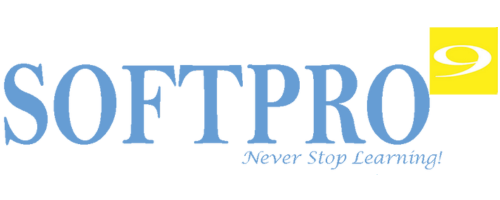
Phone Interview Success: Key Tips and Tricks You Need to Know
#1 Myinstitutes.com is one of the Best Educational Portal and Training Institutes in MYSORE, MANGALORE, and BANGALORE.
In today’s competitive job market, phone interviews have become a critical part of the hiring process. Often used as an initial screening step, a successful phone interview can pave the way for an in-person meeting or even a job offer. Yet, many candidates underestimate the importance of phone interviews, treating them casually or failing to adequately prepare. In reality, these interviews require as much attention and professionalism as any face-to-face conversation.
Unlike in-person interviews, phone interviews remove the ability to rely on body language and visual cues, putting more emphasis on your tone of voice, word choice, and ability to communicate clearly. Therefore, it’s essential to master specific skills and techniques that are unique to this format. From creating the right environment to speaking confidently, a well-executed phone interview can set you apart from other candidates.
Whether you’re facing a brief screening call or an in-depth discussion, following the right strategies can significantly enhance your performance. In this guide, we’ll walk you through some of the most effective tips and tricks to help you succeed in your next phone interview.
1. Be Prepared—Not Just Physically, but Mentally
Preparation is key for any interview, and phone interviews are no different. Start by researching the company, role, and the industry. Familiarize yourself with the job description and align your skills and experiences to what the employer is looking for. Have a copy of your resume, notes, and the job description handy so you can refer to them easily during the call.
Equally important is mental preparation. Phone interviews often come with an added challenge of limited feedback—without the visual cues of face-to-face communication, it can be harder to gauge the interviewer’s reactions. Practice answering common interview questions out loud to build confidence and refine your delivery.
Pro Tip: Rehearsing your answers aloud helps you sound more polished and confident when the time comes. Consider recording yourself or conducting a mock interview with a friend to catch any potential weaknesses.
2. Set the Scene for Success
The environment you choose for your phone interview can make or break your performance. Select a quiet, comfortable, and distraction-free space where you can focus entirely on the conversation. Ensure you have a strong phone connection, and consider using headphones with a built-in microphone for better audio quality.
If possible, avoid the temptation to take the call on-the-go or in a casual setting. Treat the phone interview with the same formality as an in-person meeting—sit at a desk or table, dress professionally (it helps set the right mindset), and keep all relevant materials within easy reach.
Pro Tip: Use a landline or ensure your mobile phone is fully charged and has a reliable signal. A dropped call during an interview can leave a negative impression.
3. Be Mindful of Your Tone and Pace
Since the interviewer can’t see you, the tone of your voice and the clarity of your speech become the primary ways to make a good impression. Speak clearly and at a moderate pace. Avoid the extremes—don’t talk too fast or too slow. Pausing briefly before answering questions not only shows that you are thoughtful, but also helps avoid interrupting the interviewer.
Pro Tip: Smiling while you talk can make your voice sound more positive and enthusiastic, which can translate into a more engaging conversation. This small psychological trick can help you come across as more approachable and confident.
4. Stay Engaged Through Active Listening
Active listening is critical in phone interviews. Since there are no visual cues to rely on, pay close attention to the interviewer’s words. Avoid interrupting or talking over them, and use verbal cues like “I understand” or “That’s a great point” to show that you’re engaged in the conversation. When it’s your turn to speak, acknowledge what was said and respond thoughtfully.
If needed, don’t hesitate to ask for clarification. It’s better to ask a question than to make assumptions and give an incorrect answer.
Pro Tip: Keep a pen and notepad nearby to jot down important points or questions that arise during the interview. This can also help you remember key information for follow-up questions or thank-you notes.
5. Tailor Your Responses and Ask Insightful Questions
Phone interviews are often used to quickly assess your fit for the role, so it’s important to make every answer count. Tailor your responses to highlight your relevant skills and experience, keeping your answers concise and focused. It’s easy to ramble when you’re nervous or trying to overcompensate for the lack of visual feedback, but brevity shows you can communicate effectively.
Also, don’t forget to ask your own questions. This not only shows your interest in the role but also provides valuable information to help you assess if the job is a good fit for you.
Pro Tip: Prepare at least three to five questions ahead of time, such as “Can you describe the company culture?” or “What would success in this role look like in the first six months?”
6. Follow Up with a Professional Thank-You
As with any interview, it’s important to follow up with a thank-you email after the phone call. This simple gesture reinforces your professionalism and interest in the role. In your message, mention something specific from the conversation that resonated with you, and reiterate why you’re excited about the opportunity. A well-crafted thank-you note can keep you top-of-mind as the employer narrows down candidates.



